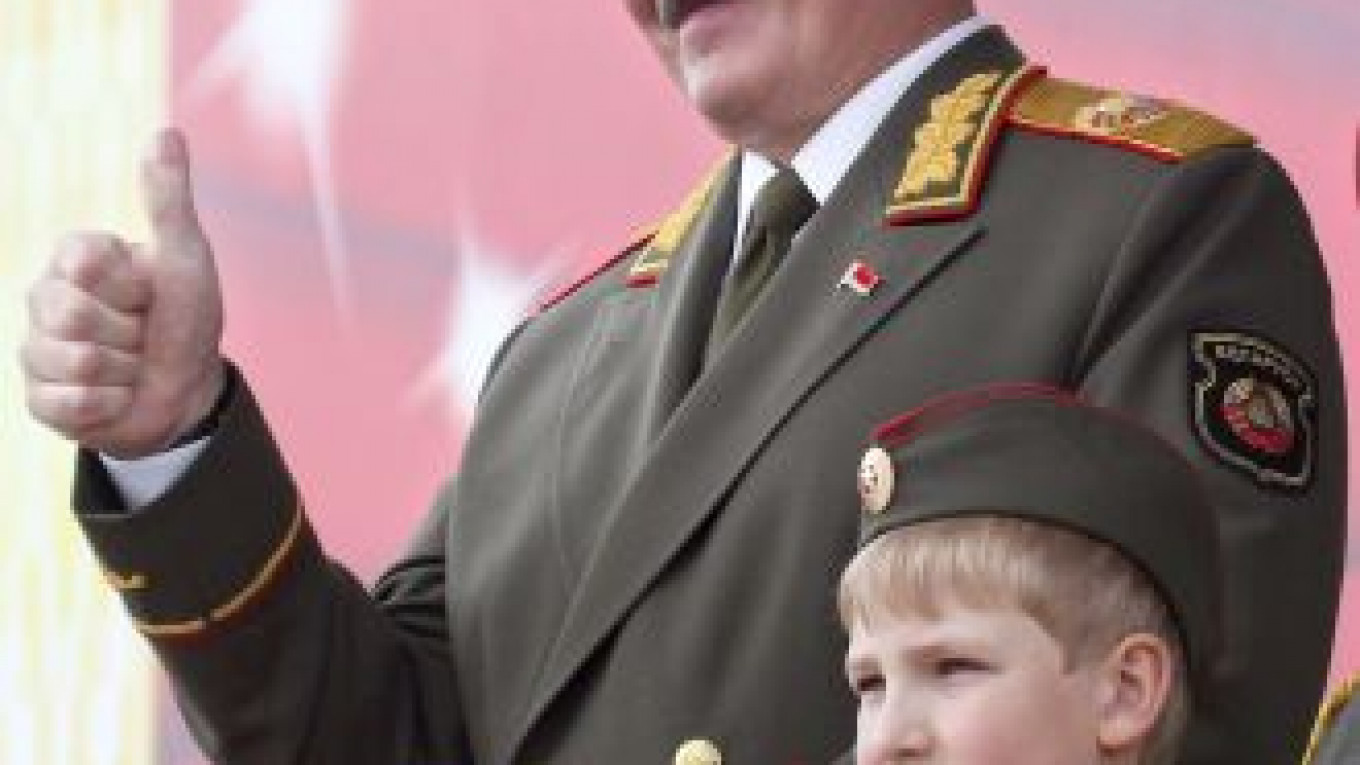MINSK — Belarussian police have arrested scores of people holding "clapping" protests in central Minsk against President Alexander Lukashenko, who told an open-air rally that a plot was afoot to end his long rule.
Social network sites run by mainly young protesters had urged their supporters to mark Independence Day on Sunday by staging peaceful protests against Lukashenko, in power since 1994, simply applauding in unison to show their discontent.
An opposition web site, NN.by, reported similar protests in at least six other towns, with some arrests. Details of the reports could not be independently confirmed.
While protests during Lukashenko's midday speech were quietly quashed, violence erupted in the evening outside Minsk's main rail station in chaotic scenes in which some protesters exchanged blows with plainclothes police who turned out in huge numbers.
Police fired a tear gas canister to subdue the protesters, who included not only young protesters but also some elderly people and women with their children.
The numbers of police were such that on one occasion a group of plainclothes police readied to attack a group of their comrades whom they did not recognize and were only stopped at the last minute.
Earlier in the day, the protest began with young people applauding outside the central station.
At one point, a young couple arrived at the protest with their young children and began openly clapping, in full view of plain clothes policemen who were arresting people around them.
"We want our country to improve. We want there to be free elections," said the woman, who gave her name as Yelena. "But these are peaceful protestors, and they are being very cruelly treated."
Opposition to Lukashenko has grown bolder as Belarus struggles to overcome a currency crisis.
The balance of payments crisis was caused by 30 percent to 40 percent hikes in public sector wages and pensions last year aimed at ensuring Lukashenko's comfortable re-election in December, but which helped create a current account trade deficit.
That led to a 36 percent devaluation in May of the Belarussian ruble, which virtually wiped out the gains of the wage rises and has now severely curbed companies' means of purchasing vital imports.
The crisis has emboldened a younger wave of protesters, outside the established opposition mainstream, to issue online calls for "silent" protests, marked only by clapping.
Police and state security officers who turned out in large numbers for Sunday's rally at a wartime memorial site on Minsk's Avenue of the Victorious quickly seized the few people who applauded.
Lukashenko, 56, speaking before a military parade on Belarus' Independence Day, said he viewed public protests as part of a plot to overthrow him that he intended to stop.
Somebody "is trying to copy a 'color revolution' scenario here," he said, referring to a series of peaceful protests that led to the change of leadership in Georgia and Ukraine in 2003 and 2004.
"They want to bring us to our knees," the former Soviet state farm director declared. "This is not going to happen."
Though protest groups appear to be growing bolder in Belarus, diplomats and other observers do not see any immediate threat to his grip on power.
Through populist policies and forceful personality, he has forged a profile of "father of the people" that goes down well, particularly in outlying country areas.
There are no signs of disloyalty from members of his government or within the ranks of the powerful security forces.
More particularly, there are no signs that the sporadic protests by young intellectuals mainly in Minsk have found any echo with a broader section of the working population that could lead to a groundswell of opinion against him.
But the crisis has deepened his isolation internationally, and there is a sharper edge now to Belarus' crucial dealings with Russia.
Long a pariah in the West because of his rough handling of the political opposition, Lukashenko is being pushed further toward Russia, which long subsidized the Belarussian economy with cheap oil and gas supplies.
Moscow has backed disbursement of $3 billion of bailout money over three years to Belarus but is increasingly pressing a harder bargain in economic relations, saying it wants state-held sectors of the economy privatized for sell-off to Russian big business.
A Message from The Moscow Times:
Dear readers,
We are facing unprecedented challenges. Russia's Prosecutor General's Office has designated The Moscow Times as an "undesirable" organization, criminalizing our work and putting our staff at risk of prosecution. This follows our earlier unjust labeling as a "foreign agent."
These actions are direct attempts to silence independent journalism in Russia. The authorities claim our work "discredits the decisions of the Russian leadership." We see things differently: we strive to provide accurate, unbiased reporting on Russia.
We, the journalists of The Moscow Times, refuse to be silenced. But to continue our work, we need your help.
Your support, no matter how small, makes a world of difference. If you can, please support us monthly starting from just $2. It's quick to set up, and every contribution makes a significant impact.
By supporting The Moscow Times, you're defending open, independent journalism in the face of repression. Thank you for standing with us.
Remind me later.






